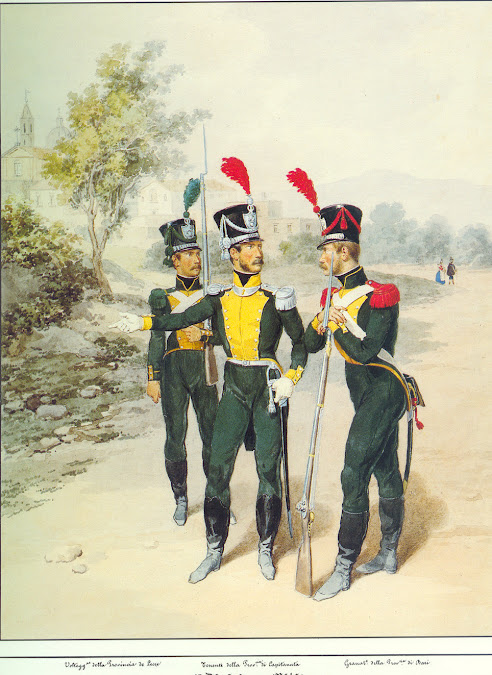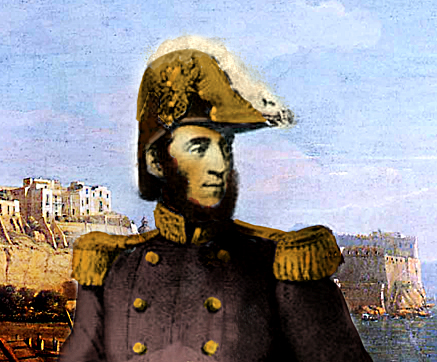The Dandy Italian
Chapter 7: Putting the rubble back

Neapolitan Soldiers
"To the new age!"
-Captain Fiamma
Chapter 7: Putting the rubble back

Neapolitan Soldiers
"To the new age!"
-Captain Fiamma
It was in the years that followed Toulon and the Congress that Joachiam Murat would truly rule the Kingdom of Two Sicilies. Taking the reigns form his wife he continued her programs, but with less vigor. Joachim saw their point but to her extent. Though with Reggio Joachim paid much attention. It was from Reggio that his companions crossed the Strait and seized Messina. He decided to put his army to use in rebuilding the city with some new additions. Those additions would include a naval dockyard, a the Gioacchino Fortress, and others. Then there was Sicily proper.
Though the French were able to take Sicily during the War of the Third Coalition without too many casualties it would take from elsewhere. Following the island's fall Britain was never in a serious position to take it instead they tortured it. As if it was a hobby young captains from Malta would often venture to Sicily jump off and go to town. And there they would rape and murder. The more experienced and disciplined ones however would stick to pounding their guns at the farmhouses and lighthouses. Not to mention how causally a British commodore and his ships would cut the island from the mainland. This caused some starvation and more poverty. All in all Sicily was raped by the British in Malta. These assaults would have a long lasting effect on the culture of the islanders.
Part of the aftermath was the demand for coastal batteries. They didn't care that the war was over they wanted to be protected from though crooked tooth wretches based in Malta. Joachim a military man understood their cries and answered them. He built stouts towers across the coastline but the more interesting things occurred in Messina. In Messina he built the defenses so strong that many claimed he could close the Strait with a snap of this fingers.
Though these were all ideas of others, while he ideas of his own. His near defeat on the road to Toulon was ashaming. It should never occurred. For one his scouts should have seen it coming, for two his infantry should never broken, and for three what sort of shitty equipment had his men been using. So he went to work. He first reorganized the army into more mobile structure. Then he took up retraining the soldiers. This task would be one of the hardest he ever encountered. Day and night he drilled the men and day and night they didn't please him. However following months of work they had a breakthrough and Joachim jumped with joy. Yet it didn't stop there. Joachim kept redrilling them for far longer while he also began to upgrade, well everything. His reforms would end up creating one of the greatest killing machines in the world.




